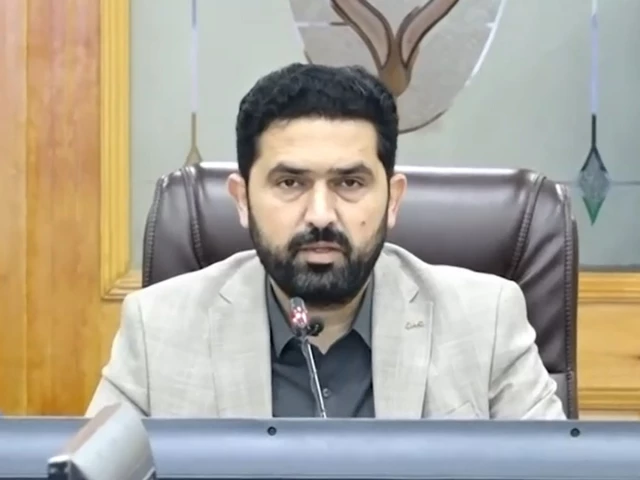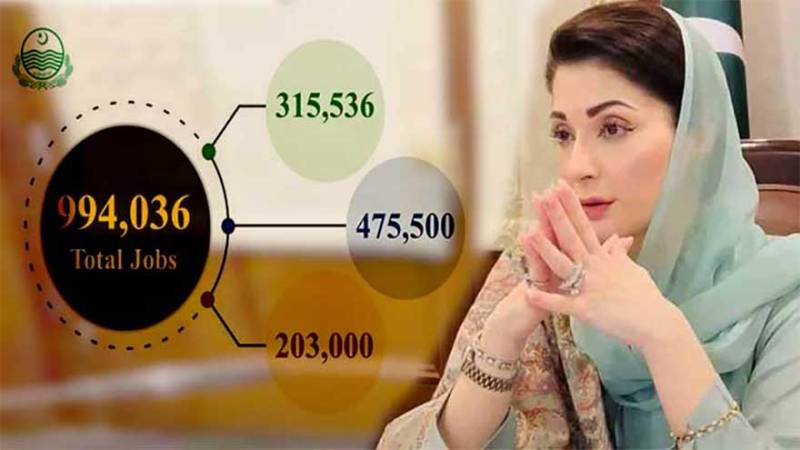Afridi calls for involvement of tribal elders, political leaders, in decisions regarding military operations
K-P CM Sohail Afridi. Photo: Screengrab

Afridi calls for involvement of tribal elders, political leaders, in decisions regarding military operations
K-P CM Sohail Afridi. Photo: Screengrab

Generally, you get two versions of England in art: it’s either bucolic vistas, rolling hills, babbling brooks and gambolling sheep – or it’s downtrodden, browbeaten, grim poverty and misery. But Beryl Cook saw something else in all the…

Giredestrant, a next-generation oral selective estrogen receptor degrader (SERD) and full antagonist, significantly improved invasive disease–free survival as adjuvant treatment for patients with estrogen receptor–positive, HER2-negative early breast cancer compared with standard-of-care endocrine therapy, according to data presented at the 2025 San Antonio Breast Cancer Symposium (SABCS).1
Results from the global, randomized lidERA Breast Cancer trial position giredestrant as a potential new standard of care, marking the first phase III trial to demonstrate a benefit with an oral SERD in this setting.
The study met its primary endpoint of invasive disease–free survival, with a 30% reduction in the risk of invasive recurrence or death; this benefit appeared to be consistent across various subgroups. A favorable safety profile was reported, with a notably lower rate of treatment discontinuation compared with standard endocrine therapy.
“lidERA is a pivotal study…as we talk about these results in the adjuvant setting,” said Aditya Bardia, MD, MPH, FASCO, Program Director, Breast Medical Oncology, University of California at Los Angeles (UCLA) Jonsson Comprehensive Cancer Center.
Aditya Bardia, MD, MPH, FASCO
As Dr. Bardia explained, estrogen receptor–positive breast cancer accounts for most breast cancers, with endocrine therapy being the mainstay of adjuvant management. Despite its efficacy, up to one-third of patients eventually experience recurrence, he stated.
Although advancements such as aromatase inhibitors in the early 2000s and, more recently, CDK4/6 inhibitors have improved outcomes, said Dr. Bardia, they have also introduced associated toxicities that lead many patients to early treatment discontinuation and increase their risk of recurrence. These limitations underscore the ongoing need for more effective and better tolerated adjuvant endocrine therapies.
Giredestrant is designed to induce full estrogen receptor antagonism and degradation, resulting in deep and sustained inhibition of estrogen receptor signaling across both ligand-dependent and ligand-independent pathways, which may offer a mechanistic advantage over aromatase inhibitors. Preclinical data and preliminary clinical trials (coopERA Breast Cancer, EMPRESS) have indicated that giredestrant exhibits increased potency and superior antiproliferative activity compared with other SERDs and standard endocrine therapies.
Study Design
The lidERA Breast Cancer study was a global, randomized phase III trial that enrolled 4,170 patients with stage I to III estrogen receptor–positive, HER2-negative early breast cancer. They were randomly assigned in a 1:1 ratio to receive either giredestrant (30 mg orally once daily, with concomitant luteinizing hormone-releasing hormone [LHRH] agonist therapy for pre- and perimenopausal women and for men) or standard-of-care endocrine therapy (tamoxifen or an aromatase inhibitor [ie, exemestane, letrozole, or anastrozole, with concomitant LHRH agonist therapy for pre- and perimenopausal women and for men]) for 5 years.
The primary endpoint was invasive disease–free survival, assessed in an intention-to-treat fashion. A prespecified efficacy interim analysis of invasive disease–free survival was performed after 336 events, at which time the first interim overall survival analysis also occurred per the hierarchical design.
The baseline demographics were found to be well balanced between the arms. The median age was 54.0 years, with 59.3% of patients being postmenopausal and approximately 40% premenopausal. About 50% of patients had stage II disease, 40% had stage III, and 10% had stage I. The majority of the study population had received chemotherapy prior to enrollment. In the standard-of-care endocrine therapy arm, 84% of patients were treated with an aromatase inhibitor, and 16% received tamoxifen.
At the data cutoff of August 8, 2025, with a median follow-up of 32.3 months, treatment had been discontinued in 347 patients receiving giredestrant and 520 receiving standard-of-care endocrine therapy.
Improvement in Invasive Disease-Free Survival
As Dr. Bardia reported, the study met its primary endpoint, demonstrating a statistically significant and clinically meaningful improvement in invasive disease–free survival with giredestrant vs standard-of-care endocrine therapy.
Giredestrant reduced the risk of invasive recurrence or death by 30%, corresponding to a hazard ratio (HR) of 0.70 (P = .0014). The 3-year invasive disease–free survival rate was 92.4% with giredestrant vs 89.6% with standard-of-care endocrine therapy, representing an absolute benefit of approximately 3%.
“The Kaplan-Meier curves for invasive disease–free survival separated early and remained separated over time,” said Dr. Bardia. “This superiority of giredestrant was consistent across all predefined subgroups, including region, menopausal status, risk, prior chemotherapy, and tumor stage [HR = 0.58 for stage II; HR = 0.74 for stage III].”
In addition, giredestrant demonstrated superiority in distant recurrence–free interval compared with standard-of-care endocrine therapy, representing a 31% reduction in the risk of developing distant metastatic disease (HR = 0.69), although absolute risks appeared to be low at this time point (96.1% vs 94.2%).
“Giredestrant also showed a trend for improvement in overall survival compared with standard endocrine therapy [HR = 0.79], although these results are immature at this interim analysis, and further follow-up is ongoing,” said Dr. Bardia.
The safety profile of giredestrant was found to be consistent with its known profile. The overall incidences of adverse events and grade 3 to 4 adverse events appeared comparable between the arms.
Of note, the discontinuation rate because of adverse events was lower with giredestrant (5.3%) compared with standard-of-care endocrine therapy (8.2%). This lower discontinuation rate was observed despite high compliance in both arms, with a mean dose intensity of over 99%. However, dose interruptions were more frequent with giredestrant (12.7% vs 6.6%).
Common adverse events in both arms included arthralgia (48.0% vs 47.1%), hot flush (27.4% vs 28.8%), and headache (15.3% vs 13.2%). Although arthralgias were common, said Dr. Bardia, those leading to discontinuation were lower with giredestrant (1.6% vs 3.7%).
Giredestrant was found to be associated with a higher incidence of bradycardia, occurring in approximately 10% of patients, but predominantly as asymptomatic grade 1 events. Grade 3 to 4 venous thromboembolism was more frequent in the standard-of-care endocrine therapy arm, likely reflecting tamoxifen use.
“These results support giredestrant as a potential new standard for patients with ER [estrogen receptor]-positive, HER2-negative early breast cancer,” Dr. Bardia concluded.
DISCLOSURE: Dr. Bardia reported financial relationships with Pfizer, Novartis, Merck, Genentech, AstraZeneca/Daiichi Sankyo, Alyssum, Menarini, Gilead, Eli Lilly, and OnKure.
REFERENCE
1. Bardia A, Schmid P, Martin M, et al: Giredestrant vs standard-of-care endocrine therapy as adjuvant treatment for patients with estrogen receptor-positive, HER2-negative early breast cancer: Results from the global phase III lidERA Breast Cancer trial. SABCS 2025. Abstract GS1-10. Presented December 10, 2025.
EXPERT POINT OF VIEW
Invited discussant Lisa A. Carey, MD, ScM, FASCO, the L. Richardson and Marilyn Jacobs Preyer Distinguished Professor for Breast Cancer Research and Deputy Director of Clinical Sciences at the University of North Carolina (UNC) Lineberger Comprehensive Cancer Center, called the findings of the lidERA Breast Cancer trial a “pivotal moment” and the “first positive data for an oral SERD [selective estrogen receptor degrader] in the adjuvant setting.”
Dr. Carey began by tracing the history of estrogen receptor targeting in hormone receptor–positive disease. She highlighted that although advancements have been made in the metastatic setting with oral SERDs, the early breast cancer setting saw “not much in the last 20 years related to estrogen receptor targeting until now,” with the success of giredestrant.

Lisa A. Carey, MD, ScM, FASCO
Dr. Carey detailed key aspects of the lidERA Breast Cancer trial design, noting the inclusion of patients with high-risk stage I disease, the requirement for ovarian function suppression with giredestrant in premenopausal patients, and the allowance of short-term CDK4/6 inhibition before but not during the trial. She highlighted the trial’s predominantly high-risk patient population, with 70% falling into the high clinical risk category, and a significant proportion having node-positive disease. She pointed out that in the high-risk population treated in lidERA Breast Cancer, modern therapy for most would include a CDK4/6 inhibitor, which was not included in the study’s design.
Regarding the primary efficacy data, Dr. Carey affirmed that the invasive disease–free survival endpoint was met, with giredestrant reducing the risk of recurrence or death by 30% (hazard ratio [HR] = 0.70). Despite it being early (median follow-up = 32.3 months), she found the invasive disease–free survival and distant recurrence–free interval data “quite reassuring,” noting the early and sustained separation of the Kaplan-Meier curves. She estimated an absolute invasive disease–free survival difference of 2.8% at just under 3 years, which, while small, is “likely to grow with additional follow-up.”
Dr. Carey also praised the tolerability of giredestrant, noting a low rate of discontinuation (5.3% vs 8.2% for standard endocrine therapy), including fewer discontinuations because of musculoskeletal symptoms. She addressed the class effect of bradycardia, observing it was a “pretty minor issue” in lidERA Breast Cancer, with predominantly asymptomatic grade 1 events.
Crucially, Dr. Carey contextualized the findings against other adjuvant advances in hormone receptor–positive breast cancer, including those from the ATAC, monarchE, and NATALEE trials. She observed “similar differences, both proportional and absolute” (2%–3% absolute benefit and HRs of 0.7–0.8) at comparable follow-up times, suggesting the efficacy of giredestrant is generally consistent with other improvements seen in this setting.
Dr. Carey also discussed the potential implications for clinical practice, particularly regarding CDK4/6 inhibitors, which were not concurrently addressed in the trial. She proposed that giredestrant will be the favored endocrine therapy for patients not receiving a CDK4/6 inhibitor. For those in whom a CDK4/6 inhibitor is appropriate, she suggested an aromatase inhibitor plus CDK4/6 inhibition for the initial 2 years, followed by a potential switch to giredestrant, though she acknowledged this specific sequencing was not tested.
The cost implications of giredestrant, according to Dr. Carey, also warrant consideration. She noted that oral SERDs in the metastatic setting typically exceed $20,000 per month, emphasizing the “large potential impact on the national health-care systems” if giredestrant is priced similarly.
Dr. Carey concluded with a strong call for predictive biomarkers to tailor therapy beyond the estrogen receptor, as giredestrant has “very broad clinical implications,” and noted that models are needed to guide decision-making.
DISCLOSURE: Dr. Carey reported no personal financial interests with any commercial entity.

Punjab Chief Minister Maryam Nawaz Sharif announced that nearly one million jobs and employment opportunities have been created across the province since February 2024. In a statement shared on her official X account, she said a total of 994,036…

Managing a hospital pharmacy is a numbers game: How much inventory is needed on hand? How much medication is being wasted? How efficient are day-to-day workflows? Every extra minute saved or wasted can multiply hundreds of times over in a single…

The incredible legacy of the Unser family at Phoenix Raceway will be honored when the NTT INDYCAR SERIES conducts an Open Test on Feb. 17-18 at the desert oval in advance of the series’ highly anticipated return to the track.
The…
Ukrainian President Volodymyr Zelenskyy on Thursday confirmed that Kyiv, Moscow and Washington will be holding the…

Early January is a time of upheaval, where people vow to make changes in the new year to improve their livelihoods and become better versions of themselves. Fittingly, The Kid LAROI’s sophomore…

The incredible legacy of the Unser family at Phoenix Raceway will be honored when the NTT INDYCAR SERIES conducts an Open Test on Feb. 17-18 at the desert oval in advance of the series’ highly anticipated return to the track.
The…

The International Space Station is scheduled to be retired in 2030, bringing an end to three decades of cutting-edge space research. What comes next remains to be seen, as several private companies compete for NASA funding to once again…